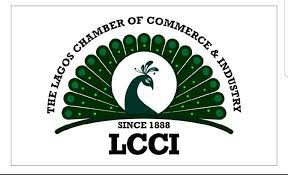The Lagos Chamber of Commerce and Industry (LCCI) has canvassed direct engagements between Small and Medium Enterprises (SMEs) and regulatory agencies to effectively address communication gaps.
Presenting the report of a study jointly sponsored by the chamber and the Centre for International Private Enterprise (CIPE), Dr Muda Yusuf, Director-General, LCCI, said access to information was critical to effective performance of SMEs.
The study conducted was titled: ‘Transactional Accountability, Process Consistency and Operational Transparency’. Yusuf said the study was administered on business owners, senior managers, and personnel responsible for interfacing with the regulatory agencies in three cities- Aba, Kano and Lagos due to their high concentration of SMEs.
He said the study focused on the Federal Inland Revenue Service (FIRS) and the National Agency for Food and Drugs Administration and Control (NAFDAC) as critical and strategic regulatory agencies.
Yusuf added that need for ease of access to information for SMEs to address gaps between officials of regulatory agencies and owners/managers of SMEs could not be overemphasized in engagement process.
According to him, this would eliminate all forms of revenue leakages and transparency issues in their procedures and operations translating to improved outcomes for both the SMEs and the regulatory agencies.
The Director General said the study also revealed the importance of full adoption of technology by the Ministries, Departments, and Agencies (MDAs) to drive efficiency and ensure transparency.
He indicated that poor deployment and inadequate use of information technology, ineffective grievance redress mechanism and non-standard approaches as SMEs and regulatory agencies engaged, created opportunities for transactional accountability breaches.
“The Federal Government of Nigeria on May 18, 2017, signed the Executive Order 001 on the Promotion of Transparency and Efficiency in the Business Environment. The objective of the Executive Order was to facilitate the ease of doing business in Nigeria through the promotion of transparency and efficiency in the business environment.
The Executive Order compelled Federal MDAs to publish a full list of requirements including fees on their websites and to ensure that the list is verified and always updated to guide and ease application processes for both local and foreign investors/businesses.
Despite the appreciable efforts by the agencies to ensure that, engagement and interface occur directly with businesses seeking their services, more than 80 per cent of SMEs engage the regulatory agencies through consultants and intermediaries.
Regulatory agencies put in place internal service complaints structure for addressing cases of service dissatisfaction through official procedures and civil service rules, coordinated by SERVICOM Department at the Head Offices. Unfortunately, these mechanisms were unpopular among SMEs as only 4.6 per cent of SMEs were aware of grievance redress mechanisms.
Even those that are aware rarely use it due to lengthy procedures for seeking redress and for fear of reprisals by the officials of the agencies. The use of intermediaries and consultants by SMEs to facilitate transaction is pervasive and the cost of procuring services and products from regulatory agencies affect the bottom-line and general performance of SMEs.
There are inconsistencies in time, cost and processes of getting services from regulatory agencies which allow making extra unreceipted/informal payment by SMEs to officials, a times just to say, ‘thank you’.”
Yusuf, however, said the study found that the management of NAFDAC and FIRS had made laudable efforts to increase accountability and transparency in carrying out their day-to-day statutory regulatory activities.
“NAFDAC in its quest to strengthen regulatory activities through stakeholders’ engagement and collaboration, designed a three-pronged approach to achieving transparency in conducting regulatory activities with emphasis on understanding and avoiding transactional corruption. This three-pronged approach is anchored on staff re-orientation, increased sensitisation as well as capacity development of SMEs and deepening IT engagement platform.
The agency has set up a plan to monitor its implementation and assess outcomes from time-to-time. Similarly, the study noted that FIRS has put in place a seamless service procurement mechanism for the benefit of its taxpayers/customers and to promote efficient service delivery performance as well as improve the ease of doing business.
These service provision mechanisms include but are not limited to the provision for e-services platforms for the various services rendered to taxpayers; existence of an anti-corruption tax unit; and re-formation of robust complaints/grievance mechanism.”
Yusuf said conscientious implementation of the recommendations would engender significant improvement in the operating environment for SMEs. He added that the recommendations if adopted would make the SMEs more competitive especially in consideration of the operation of the African Continental Free Trade Area (AfCFTA).

